|
I visited Israel in May 2024, yes during the current war. We visited the Nova festival site, and Kfar Aza, a kibbutz attacked on October 7. I could have kicked a footy into no-man's land from where we stood. And yes we heard live rounds, rockets & rumbles. We saw and heard evidences of what happened. But to understand that day and this war requires more context. That context is bigger than Oct7, includes centuries before 1948, and is literally of Biblical proportions. I'm still digesting what to say theologically and pragmatically. But meanwhile I can offer these:
1) A good list addressing many of the common myths & memes about Israel & Palestine. 2) If one side stopped shooting, the war could end tomorrow. Only one side has and would do that, and that tells us a lot about the ideologies. 3) Christians do care about Gazans' suffering from the many evils attacking them. Ultimately it will only be the Way, Work & Person of Jesus who can fix this region properly, both spiritually & practically. 4) Christians must also care about Jews, and Jerusalem coming to faith in the Messiah. Just as Israel has blessed us Gentiles with the knowledge of God & the Messiah, so we are to bless them in kind, that they may return to Him - and only when welcomed will He return to them, as He said, "For I tell you, you [Jerusalem] will not see me again until you [Jerusalem] say, ‘Blessed is he who comes in the name of the Lord.’" (Mt23:39) I'll return to this post with more info as I digest.
0 Comments
A great worldview article from James Macpherson: https://jamesmacpherson.substack.com/p/news-senator-payman-seeks-allahs Muslim Senator Fatima Payman has put religion back on the front page after revealing she asked Allah for guidance on what to do in the Senate.
The 29-year-old old West Australian broke ranks with her Labor colleagues this week to vote with the Greens in favour of Palestinian statehood. She was disciplined by the party (for breaking ranks, not for praying to Allah) and has since quit Labor to move to the crossbench. But the very idea that Payman sought wisdom from Allah before voting on policy issues has surprised many Australians who rarely give a second thought to religion. The fact is that no-one arrives at any issue values free. And we all have a religion - whether we believe in God or not. Your religion, or if you prefer your worldview, is in essence your answer to these five big questions …
A Christian, for instance, believes people are created in God’s image. With that worldview, it is impossible to agree that abortion is okay. An atheist, on the other hand, insists that human life is entirely accidental and no more imbued with the divine than a banana. Someone with that worldview might find abortion distasteful, but has no grounds to argue against it. In both instances, religion informs the policy position. So it’s redundant to ask whether politicians ought seek guidance from religion since they are already being guided by their religion, whether they realise it or not. The better question is which religion we would prefer our politicians to take their cues from. Senator Payman is a devout Muslim and so of course she would be taking her cues from Mohammad. Just as a Christian politician would seek wisdom from Jesus. So the question is whether you’d prefer your nation’s leaders getting their marching orders from Jesus or from Mohammad. On that question you don’t need a masters in comparative religion to work it out. Just take a quick look at the globe. Western nations - like the UK, the USA and Australia - are overwhelmingly built on a Judeo-Christian worldview. Middle Easter nations - like Iran, Iraq, Afghanistan and Saudi Arabia - have been built on an Islamic worldview. Which would you prefer? As Jesus said, by their fruits you shall know them. And let’s not forget our atheist friends who, consciously or not, take their cues from Nietzsche. Think Communist China or the former Soviet Union. So you can build a nation on the the law of love (Christianity), Sharia Law (Islam), or the law of the jungle (Atheism). Which would you be happiest with? Australia’s founders never imagined a country in which politicians were so arrogant that they made decisions without seeking wisdom from above. The preamble to the Constitution - written in 1901 - declares that Australia would be a nation “humbly relying on the blessing of Almighty God”. Notice it doesn’t say “humbly rely on the blessing of Almighty Allah”. If it did, we’d be more like Somalia than Australia. Fun times! Our forefathers envisaged political leaders who would be humble enough to acknowledge a power higher than themselves and to ask for wisdom. And they assumed the higher power would be the Christian God since, in 1901, there was virtually zero disagreement. A lot of people complain that our country is not what it used to be, that it has changed, and not for the better. I don’t disagree. A lot of people are also waking up to the fact that the chance in our nation is not just economic and not just social. Even non-church going people are starting to be open to the idea that we may in fact have a spiritual problem. Again, I don’t disagree. Our politicians stopped seeking wisdom from almighty God and instead - like a sailor who stopped believing in the stars and so tied a lamp to the mast of his boat and navigated by that - have done what is right in their own eyes. The results have been disastrous. There is only one way for Australia to regain its prosperity and its freedom. We need Prime Ministers, business leaders, educators and parents to once more humbly rely on the blessings of Almighty God. And I don’t mean Allah. Update July 8, 2024: James Macpherson says it simpler:
https://jamesmacpherson.substack.com/p/news-senator-payman-seeks-allahs Every politician has a worldview. The only question is which one do we want as our guiding star? I wrote this response to articles in The Weekend Australian (2/3/2024) addressing the problem of Australia’s lack of a common reference point. Well done Paul Kelly and Greg Sheridan for raising this core issue which Australian public discourse has been avoiding since WW2: what is Australia’s agreed reference point - for legislation and politics, public life, and private enterprise? They wrote that our lack of this reference point results in fragmentation, culture wars, victim-entitlement, and a lack of investment confidence. I agree. But let’s take the next step and identify the most obvious solution. Somebody has to say it: let’s officially nominate the Bible as Australia‘s reference point for national policy. Make it our moral compass when deciding laws, values, government processes. Morality is what societies’ laws are all about - what’s good & bad, allowable & not. But which moral set are we using? And why that set? There is a stronger case for the Bible than for any other moral code.
How about a referendum on that! Here is an excellent review of the movie Oppenheimer. I haven't even seen the movie, I'm not even advocating you see it either, it's not family friendly including some gratuitous sex scenes apparently. So why am I recommending this review?
Because the review names some very important questions that need answering about immanent dangers in our own time, like AI and biotech, and more importantly whether we can or will listen to wisdom from minority voices, rather than simply cancel them. Same with any big issues, like referendums. It's better to get all the facts & ideas on the table... Here, look, just read: Two Lessons from Oppenheimer | Evolution News A current case of cancelling a needed view: ending Child Slavery requires open conversation about the facts, yet some players in Hollywood have resisted the release of the movie Sound Of Freedom by Angel Studios (The Chosen), labelling it 'controversial.' Ha! I'm booking my tickets to this one: Sound of Freedom - Daily Declaration (canberradeclaration.org.au) It matters to a lot of people: about half of Aussies surveyed said the matter of science and evolution prevents them from taking the claims of Christianity seriously.
First let me caution anyone in that situation, don’t make creation timing the issue that determines your eternal destiny. The eternity-breaker is whether or not you trust the living God. There are other good & sufficient reasons to believe in and trust the Creator. Such as: . the manuscripts and archaeology of the Bible, which indicate it was reliably transmitted, and the prophecies and storyline within it which indicate a divine source. . the historicity of the life, death and resurrection of Jesus, the latter giving further evidence of the divine. So a supernatural creator is still evident even without addressing the timing issue. I used to be ambivalent about creation timing because I had those other anchor-points for trusting God through Jesus. Maybe that's why some Christians leave the timing question unanswered, or even settle on long-age interpretations, because they have other good foundations for their faith instead. However, for Aussies without any of those other anchor-points, it’s understandable that science and evolution is a problem, because what we read in Genesis 1 is so shockingly different from what most of us are taught in school about billions of years and evolution. So it is fair to ask, “which timing is right?” Let’s start with this: "it is reasonable to expect the Creator's Account to interpret ALL observations consistently.” I'll defend that, but for now I'm saying we should not have to discard the Bible in favour of simplistic assertions about what "the science says.” We should be able to research and uphold all the legitimate observations of both sciences and the Bible. Equally we agree that we cannot uphold all contradicting interpretations of those observations. Now when I finally did examine enough of the evidence (both Biblical and scientific), I found that when it comes to origins, most of us were not given some critical information:
So where can normal people like us find specific observations with interpretations that are Biblically consistent? I recommend creation.com. On closer inspection as an adult, contrary to what I was taught at school and most media outlets, I have found that Bible-based interpretations of origins involving special creation are more consistent with all the relevant observations than any naturalistic interpretation. After all, it's reasonable that The Creator’s Account would interpret ALL observations consistently. 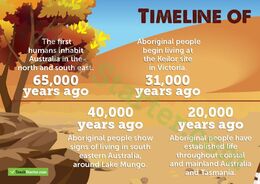 60,000 years? Over the last few years I have heard this so often, I decided to check it out. Every time Australian Aboriginal heritage is mentioned, it comes with the supposed fact that “The world’s oldest living culture has been here for 60,000 years!” It is said as fact. But is it a fact? Or just an interpretation? How do we know it's true? The 60,000 years is meant to imply nobility, resilience, and knowledge. Of course it doesn’t logically follow that just because a group has been here a long time, it demands they were good, bad, or indifferent, resilient or noble. Indeed there are some 300 Aboriginal nations across Australia, some better than others, so however long aboriginal peoples were here, it wasn't all unified... But today I am not questioning the implications of the 60k claim, but the claim itself. Partly because it cuts against the 6,000 year chronology of a plain reading of Genesis 1-11 (which, by the way, can successfully interpret every scientific observation ever made.) But moreover simply as a matter of questioning and probing the 60k claim itself. For such a claim to reach the status of “fact”, it must be verifiable, falsifiable, not based on circular assumptions. What I found is that the 60,000 year claim is not a fact but merely an interpretation, because: the claim is based on tests with interpretive assumptions; the claim ignores the only test with a measurable rate; the claim ignores the written historical records we have of human history. 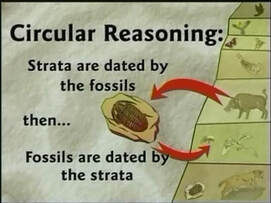 1) Interpretive Assumptions The list of evidence given to support the 60k claim appears strong at first, offering so many tests: Archaeology, ancient tools, rock art, burial sites, campfires in certain soil strata, geological changes, climate changes, mega-fauna extinction. But these are all based on cross-referencing each other, or circular reasoning. The way out of the circle is supposed to be Carbon-14 dating. But C14 dating itself is based on interpretive assumptions, such as the ratio of C14:12 at the start of the timeline, or that the C14:12 ratio is entirely based on radioactive decay, not other contamination or leaching, or carbon-capture event, such as a global Flood. Similar interpretive assumptions apply to Thermoluminescence, Electron-spin resonance. And Thorium-uranium and Protactinium-uranium tests likewise rely on interpretive assumptions about ratios not being affected by environmental factors as if it is a ‘closed system.’ https://creation.com/the-dating-game. creation.com/how-carbon-dating-works. creation.com/carbon-dating-fooling-whom. Mitachondrial DNA tests have had to be revised down too from 100,000 years to 50,000 years since that’s the upper limit of how long we can imagine DNA can survive. The truth must be much lower than that since DNA in sub-optimal conditions could not last that long. https://creation.com/was-adam-from-australia-the-mystery-of-mungo-man. But testing MtDNA is on the right track... 2) The One Test with a measurable rate - Ignored In 1998 Mitochondrial mutation rates were finally measured, and they mutate much faster than expected. Calculating at this measured rate, back in time to a point of perfection, yields an age of some 6,000 years. Why do you think this test is ignored, the only one with a measured rate? https://creation.com/a-shrinking-date-for-eve ; https://trueorigin.org/mitochondrialeve01.php 3) The Oldest Written Histories we have - Ignored The Biblical accounts are among the oldest written histories we have. Back to the times of the Pharaohs, and before to Ur, takes us to a historical date of around 2000 BC. And chrono-genealogies take us further to the time of Adam around 4000 BC. These historical documents have proven reliable archaeologically time and again. Why ignore them? https://creation.com/how-old-archaeology-conflicts-bible. Why would one prefer the results of dating methods based on assumptions and interpretations? I imagine for credence with one’s peers, I understand, but truth is not determined by social pressure. Why ignore dating methods with measurable rates, using verifiable observations? Is it just because they yield results that don’t fit the peer-narrative? https://creation.com/young-age-of-the-earth-universe-qa My interpretation of these observations is that 60,000 years is not a fact, it’s just an interpretation, ultimately based on self-serving assumptions. What’s your interpretation of the actual facts? And what foundation is it based upon? Update: 3 Feb 2024
Someone asked about Dendrochronology (tree rings) as a way of verifying C14, but this is caught in the same circular loop. https://creation.com/tree-ring-dating-dendrochronology. So my doubt about the basis of the 60k claim still stands. Is the Biblical 6000 years a recent invention? No, and I say that in light of the perspicuity of the text itself (creation.com/6000-years) [always wanted to use 'perspicuity' in public, now I have!], but also in light of more thorough reading of the past authors themselves, including Augustine. creation.com/old-earth-or-young-earth-belief To approach scientific observations with the Creator’s Account as your hypothesis is not anti-scientific, it’s a quick way to find good hypotheses to test, because we can expect the Creator’s Account to interpret all observations consistently. Such an interpretation should be the true goal of science. To approach scientific observations with long earth hypotheses is just as pre-deterministic as critics claim creationists are, but worse because it is based not on God’s Word but Man’s words. And it is a reductionist approach because it excludes data that hints at God because it hints at God (more circularity.) In other words, such a mindset is an atheistic stronghold. It is naive to think that this naturalistic ‘scientific method’ is altruistically self-correcting and open-minded, specifically when it comes to interpreting the past. creation.com/scientists-wrong . creation.com/its-not-science . As you can see, I’m now just the go-between for you and the search bar at creation.com. Cut out the middle man and take your further questions there. I find they reference more facts, with footnotes, and do so with more clarity about the difference between observations and interpretations, and more self-awareness of their own bias. Seek answers that interpret ALL the observations consistently, Biblical & scientific. My submission to Labor government's Communications Legislation Amendment (Combating Misinformation and Disinformation) Bill 2023 (Cth).
The proposed Combating Misinformation and Disinformation Bill must be withdrawn. I accept that we don’t want misinformation and lies being spread, but the alternative is worse. So it has always been. Yes, we don’t “want” lies propagated, it can be hurtful and misleading. But freedom of speech ensures that the truth will also be out there. 1. Worse than a plethora of lies, is the absence of truth. Suppressing freedom of speech not only suppresses lies but also truth. 2. Suppressing freedom of speech inevitably suppresses truth. Such suppressive power as in this bill allows abuse by powerful interests by becoming the arbiter of truth and lies - it is a powerful position, you can control the decisions and thus the outcomes. And so the law of the jungle ensues, and the one with the most power suppresses other narratives. Further abuses then flow from that, as every Nazi & Communist government’s propaganda department has proven. 3. Power-brokers will use such a Bill with its powers and sanctions to undermine democracy. They will manipulate the masses to accept only their narrative, inevitably leading to entrenching their power further, silencing dissenters (brutally and unjustly), and thus violating human rights. By this point government transparency has long gone, replaced with shadows in which abuse & suppression is justified in the name of ‘greater good.’ Have we not learnt from history! 4. Special-pleading that “our government wouldn’t abuse such powers” only belies a profound ignorance of human nature, and the need to safeguard against its love of power. 5. Reasons for freedom. Within a multicultural democracy, we need to allow freedom for very different worldviews to co-exist living according to different understandings of the truth, but also we must be clear about the reasons why we must allow such freedom. Here is why we must allow freedom of speech & dissent: - Pragmatically speaking: a) Freedom of expression lies at the heart of human freedom. If we don’t allow speech & expression to be free, we don’t allow people to live free, to live as they ought according to their best perception of reality. Moreover we impede their engagements with other viewpoints, which can help further refine their perceptions of reality. b) Free expression must concede that conflict must occur. As different truth-claims are made, conflicts will occur - so it must be, since the only alternative is to sacrifice freedom. And conflict per se is actually necessary, it’s a means of clarifying and learning. c) Hurt may arise from conflict, but hurt is a price of freedom amongst diversity. If conflict per se is not harm, nor is disagreement, nor is dissent, then any harm ensuing from conflict is not from conflict itself, but from the ways in which conflict is done. Thus we reject that disagreement or conflict or even hurt are valid reasons for suppressing freedom of speech. It is certainly not for the State to exclude peoples' freedom on the basis of mere hurt feelings. d) Harm must be carefully delineated from hurt. Harm comes from the ways in which conflict is handled, not conflict per se. Thus we may limit the ways we conflict, and police protect against bad ways. But we do not limit the content of the conflict itself. Indeed we have good and preferred ways to conflict well, productively, and to live with disagreements. We certainly do not suppress disagreements themselves. - Foundationally speaking: e) We must clearly safeguard the reasonable foundations of freedom of expression. Otherwise freedom becomes a cut flower doomed to wither without roots. The Judaeo-Christian tradition gave rise to freedom of dissent, human rights and dignity, free speech, and the Creator-referencing democracy that expressly allows participation in the state regardless of religion. Are there other worldviews that produce such freedoms? Safeguard those too. But be clear about them. f) Conversely we must name worldviews that rationalise the suppression of such freedoms. We should view them suspiciously, and they should certainly not be adopted by the very democracy they would threaten. Perhaps such a suspect worldview is held by the proponents of this Combating Misinformation and Disinformation Bill. The very freedoms they are using to propose it, are the same freedoms it threatens. Suppressing free speech as this bill would do, as if ‘the government’ knows the truth and the populace does not, is certain to suppress truth and freedom, and thereby grievously undermine our free democracy. Please, immediately withdraw and delete this Bill, and anything like it. Thank you. Geoff W 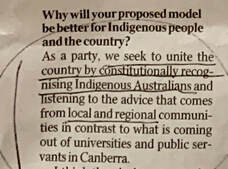 There are two questions in this referendum: 1) about constitutional recognition of Indigenous Australians, which is due; and 2) about a new national Voice mechanism. Part 1) already has bipartisan support. “As a party, we seek to unite the country by constitutionally recognising Indigenous Australians.” says Peter Dutton, (Weekend Australian 15 Apr 2023, p21 right.) [On the next page Peter Craven (ibid p22) gives a false premise by claiming, “the state of Australian politics now means you are for constitutional recognition or you’re against it.” That's clearly false. It's the divisive narrative, falsely casting opponents of the Voice mechanism as anti-recognition, even racist.] It's only part 2), the Voice, that does not have broad support. Warren Mundine makes that case (ibid p15 below). There are 150 plus aboriginal nations in Australia - who's voice will be represented in The Voice? And how can The Voice mechanism truly supersede existing processes when it promises to maintain the existing processes it claims don't work! Or do they actually work after all, in which case we don't need the Voice. If the Voice mechanism is a good idea, let it gain support on its own merits, not by forcing it into the constitution. Separate the issue of constitutional recognition from the Voice mechanism. So what words will be changed in the constitution? Here is the wording change as initially proposed in March '23: - One concern is about how submitted Australia would become to this "body," the Voice. Part 3 indicates the mechanism can be changed by parliament to suit the needs of the times. But still, how much political pressure would Voice representations have? Who could ignore them without being labelled racist? "Co-existing sovereignty" is an oxymoron, clearly divisive, yet precisely what is called for by the Uluru Statement from the Heart, which tells us the aims of the Voice.
- A second concern is that The Uluru Statement from the Heart clearly submits to a polytheistic worldview with which I do disagree. Albanese's position is to submit us to it: "While the Voice could be done without a referendum, Indigenous people asked in the Uluru Statement from the Heart for it to be enshrined into the nation's founding document as recognition for First Nations people." But I'm happy with the constitution's current first words, "Under Almighty God..." which belongs there, both absolutely and also because all religions, even Aboriginal, have a concept of a supreme Creator behind it all, even though some then diverge into polytheism and pantheism. And even atheists can agree that societies do better in reference to God, even if He's only a unifying concept (in their thinking.) But the Voice is to be created in reference to ancestral polytheism instead, and is Australia then to submit to this polytheism? Wiradjuri man Neville Naden explains reconciliation from a Biblical perspective - it's better. Here are some more on the theological considerations of aboriginal recognition - there are limits. Plus a fair read of the Uluru Statement also indicates a naive Cultural Marxist agenda (This link also takes you to the full Uluru Statement from the Heart not just the one pager. - A third problem to consider is that establishing the Voice as an extra mechanism separates out first peoples from the rest of Australians. Are we sure we want this? We can never be one people if this specific separation is constitutionally perpetuated. As a Christian I know that all nations ultimately can be united in Christ, as Christianity is the only truly multicultural worldview, (and it even has the foundation for allowing people to not choose Christianity.) Australia could be that kind of unified country, but would this constitutional change be a wedge against such ultimate unity? It is one thing to recognise that Aboriginal people were here first and we need to correct the lies and fallout from tera nullus, but it's another to enshrine a mechanism that will require & maintain two voices, never to become truly one. Constitutional recognition? yes, something in the constitution is due. The Voice mechanism? no, it will constitutionally commit us to ongoing racial separation, and conflicts over co-existing sovereignty. It is certainly not racist to refuse a divisive mechanism. That's why I think it very sad that Albanese is blowing this opportunity for constitutional recognition by imposing the Voice. The official referendum booklet of Yes/No cases includes other arguments not listed in this blog, but doesn't include the problems of polytheism or co-existing sovereignty. Nor does it address the very involved processes of the Voice that are being planned for all levels of governments, by the Indigenous Voice Co-design Process Final Report to the Australian Government July 2021. Is a right understanding of Marriage an essential issue?
I'm told some Baptists are wondering what to do with churches in the denomination that want to conduct and affirm gay weddings. Is gay-marriage an essential for unity among us, or a non-essential for freedom? First, in all things love. That is, if male-female marriage is retained as an essential for unity in the denomination, and changers disagree with that and leave, there can and should still be love between us. Disagreeing doesn't mean we stop caring about each other. No-brainer. What message would non-affirmation send to LGBTQ people? 1. That love isn't contingent on agreement. It is presumptuous to suggest that affirmation is the only option when it gets personal. Many of us have found there is liberation in being loved in spite of disagreements, rather than dependant upon agreement. (The former is tolerance, the latter is bigotry.) So we provide unconditional love to others with whom we disagree. If love is conditional on affirmation, then where does one turn for love when opinions differ? Thus, here is a group who loves people anyway, whilst they change in theological, spiritual, psychological, social dimensions. This is the truelove.is testimony of more LBGTQ people than the activists. We can disagree over sexual mores, yet with real love and acceptance of the person, "warts and all," as we used to say. 2. That our definition of marriage and gender involves much more than the two people - God instituted it with male-female specifically built in as a sacred model to the world of Christ and the Church (Eph5). This is a non-negotiable theme in our foundational texts. "Isn’t marriage a non-essential issue over which we can agree to differ?" Or is marriage actually sacred, not open to redefinition, an essential at least in the sense of worthy of denominational distinctive. Baptists drew a line about baptism: is marriage of that order? Here’s the main point (which was mostly omitted during the marriage plebiscite debates, as people debated a handful of passages specifically prohibiting same-sex immorality): marriage is a majestic theme of some 600 verses winding throughout Scripture about marriage/divorce, faithfulness/unfaithfulness, husband/wife, and all in contexts assuming male/female-ness - such that if it is not male/female it is not marriage. This theme includes a special synergy between a man & woman, male-femaleness being part of the original Imageo-Dei (Gen1), and is specifically reiterated by Jesus (Mat19). Marriage is thus a sacred union, an object lesson of Christ and the church, our ultimate destiny in the New Jerusalem, indeed a salvation invitation, “The Spirit and the Bride say “Come!”” (Rev 21,22). This sacred union is therefore not something we can redefine to suit the winds of culture. It is specifically gender-defined by God, as part of our foundational creation, and our eternal destiny, which our puny human marriages are supposed to model in the meantime (Eph5). "Is marriage a salvation issue?" Does an individual have to understand human marriage in order to be saved, no, salvation is not a theology test. But there must be our marriage-like covenant with, and submission to, Christ in view of his saving sacrifice for us. We’re saying “I do” to Jesus, just like …a marriage. Christ died for his Bride. Marriage (male-female) is part of our image-of-God foundations, our relationship with God, and our ultimate destiny. Faithfulness to marriage is about faithfulness to Jesus, which is about our salvation. Recently I've observed how Naturalism and New Age converge upon the same sexual immorality as supposed gateways to evolution/enlightenment. Kinseyan Naturalism promotes sexual immorality as evolution; New Age Tantric Hinduism promotes sexual immorality as enlightenment. Why would worldviews from such seemingly different foundations land on the exact same marriage-destroying practices? Because they come from the same pit. Same as the gnostic temple prostitution which Paul confronted in his day. Marriage is a prime spiritual battleground. It seems to be more a salvation issue than the world is aware of. Pray into that. "Was sex a part of any apostles creed?" Yes, the Jerusalem Council Acts 15:29. No sexual immorality (ie sex outside marriage [which is male-female.]) "Does the fact that sex isn’t in most creeds mean it is not a salvation issue?" Many sins are not mentioned in the creeds, but that doesn't make them ok. In fact we could say that in Christianity sexual morality was assumed as a given, until now. Likewise the nature of marriage a given. Moreover a big salvation issue is whether we trust & obey Jesus or not, whether we listen to Jesus and do what he says - and what Jesus says on the nature of marriage is actually pretty clear. "Is gay marriage like divorce, something we’ll just get used to, and eventually justify?" No, because in Mat19 Jesus allows for divorce due to hard-heartedness, but he re-affirms male-female marriage. To justify non-hetero marriage, you’d have to ignore Jesus affirmation, and that Biblical marriage grand-narrative. "Don’t we want to see love win, not truth win?" It’s not either or, it’s only both. If it’s not truthful, it's not going to be loving. Good intentions alone pave the road to a bad destination. The road to heaven is paved with wisdom, truth in love. "Isn’t disunity a bad witness?" Sure, so don't depart from Jesus' way. Listen to Jesus, unite around the truth of the matter. It is unity in the Spirit of Christ that is a good witness. Truth in love. Not mere contradictory affirmations of whatever, that’d be disunity. What good is salt if it loses its distinctive flavour. Our unity is in seeking first the Kingdom of God and his righteousness, allowing him to add to us what we need. When our hearts are filled with love from him, we start to see our true identity is in him, not in sexual identity or any other idolatry. He leads us into his life-giving truth. God does love the whole world, yet not all will be saved. God loves Jew and Gentile alike as both find their unity in Christ - in fact Col3:11 is in a passage specifying putting off the sexually immoral self, and putting on Christ who is all and in all. "Who decides which way is the truth he will lead us into?" The wisdom of scripture does indicate what his righteousness looks like. And one’s interpretation of scripture must include ALL the relevant passages, not just a handful, not just the love passages, but the ‘put off’ passages too, and the grand-narrative. So although one might not agree at first with his truth, over time the honest enquirer of the LORD will soon be led in that way. "So what is a denomination to decide?" It is fair and fine for Baptists to retain Biblical marriage as a denominational distinctive (it is fair to say that marriage was always assumed to be male-female - until these recent challenges to that unity.) I’d say retain it as we do with baptism, for the sake of truth in love, unity in the Spirit, and scriptural integrity. All of us who are mature should take such a view of things, and if someone disagrees, this too God will make clear to them. Meanwhile they can either concede or secede. "What about free speech, freedom of conscience?" Some have falsely compared this situation to Andrew Thornburn's case where we say he should have the right to think differently than Essendon on marriage, yet here we are saying gay-marriage Baptists should not be allowed to so practice within the Baptist union. This is a false comparison. Every club has its social (or formal) contracts, the parameters within which we agree to operate. A footy club is about playing footy, which has nothing to do with sexual mores: if you play footy you're a team-mate, regardless of whatever else you think about other things, we expect you to cooperate around footy. This makes footy a great Third Place community. A church's focus is around following Jesus, which does have something to do with sexual mores: if you seek to serve him, you're a team-mate, but just as there are rules in footy, there are moral parameters in the church within which to teach and protect the flock from wolves. So every denomination or church defines those, and participants are relevantly expected to concede to those. Thornburn's sexual mores are not relevant to footy, and it is totalitarian to say so. But they are relevant to church, where he may discuss divergence but is expected to ultimately concede to the relevant social contract. "Isn’t that still divisive?" No, and it's actually manipulative to say so. Every group has agreed parameters. In this case the nature of marriage was always an agreed distinctive. (As a marriage celebrant I have a letter from the Baptists of WA about marriage after the plebiscite that clarifies this.) Now that some seek to change it, it’s not divisive to retain the distinctive. It should simply be a matter of the changer deciding that they are now outside the existing parameters of the group. That happens. And if the group disagrees, you can start your own group with your own parameters. What is divisive is for the changers to claim the retainers are divisive, and try to force a change in the name of "unity" - that’s off topic manipulation and should be rebuffed as such. Get back to thinking and praying about the issue itself. And if retainers resist the change, changers don’t get to take over the group and send retainers off to start their own group. Watch out for that deception. I found myself in conversation with a United Australia Party representative at the local polling booth at last Saturday's federal election. He said, "We all want freedom, right!"
"Mm, that's a value that comes from somewhere," I replied. He nodded, "it's all about goodness and kindness, right." "And those values come from somewhere too." "Yeah, err..." he stalled. I bailed him out: "Y'see, I like a lot of your values, but I'm voting Australian Christians because they are very open about where their values come from - it's the Bible, it's God, the foundations of the Judaeo-Christian worldview. So I know whatever questions they face, they will try to figure an answer from that reference point. What about the other parties - what are their reference points? Clive Palmer? Marx's Communist Manifesto? Prevailing popular opinion?" So that's my basic question for every party and representative: "What's your reference point?" Sooner rather than later, shift the conversation from world-views to foundations of worldviews. That is where I want the convo to go anyway! Moreover unless we understand different foundations, we can't talk meaningfully about worldviews. See the video below at 45:54 (Note: Ken defines world-views as based on foundations, whereas I define worldviews as including foundations, but his distinction is helpful here.) If people are attacking you for your world-views (about say, abortion, gender, love), it may only mean you are inconsistent with THEIR foundations. So exposing the different foundations, allows you to have a deeper more useful conversation about that first. And it raises the question: WHOSE foundation is the true one - God’s Word or man’s word? God's Word really shines as an objectively reliable foundation.
We have objective observations, and consistent interpretations of those observations which have better global explanatory power. We have good and sufficient reasons to accept the Bible's historical reliability, and its divine revelation. (See apologetics for how we know the Bible is reliable - Core Stuff). Compare this Biblical foundation with naturalism's… .Naturalism simplistically excludes any supernatural phenomena, only admitting self-supporting data, a closed loop for a closed mind. Also, Naturalistic science is often biased by peer pressure and financial pressure to conform or be cancelled, especially wherever scientists are unquestioningly wedded to their own interpretation (eg. evolution.) Note there is a crucial difference between observational science (which is based on the measured data), and historical ‘science’ (which depends more upon interpretations of the data.) All interpretations must work with the same observations (not simply exclude observations that don't fit.) And Biblical interpretations work just as well with all the observations as any other interpretation, in fact better - eg They offer more consistent interpretations across all disciplines, such as design, genetic entropy, biology, geology, anthropology, cosmology, historical archaeology & manuscript evidence... Search creation.com for your subject of interest. Interpretations rely on founding assumptions. Question them. Expose them. Until your naturalist protagonists can see that, & why, our foundations differ from theirs, they’ll not see why our world-views differ from theirs. This is such an obvious point. Maybe some refuse to look foundationally because it's easier to simplistically label us illogical / primitive / hateful / conspiracy theorists. That would be divisive avoidance of real world observations. And the fact is, we’re none of those things. Rather, our world-views logically flow from a different foundation, (better, more consistent with all the observations, more solid/good/life-giving, but different), a foundation worthy of their consideration... if they only would. If they DON'T see that much, well that would be illogical, wouldn't it. If they DO see that much, they should give us a little credit. And consider our foundations. What's a boss meant to do? The state government says their staff must vaccinate, or the company will be heavily fined. Should bosses view these mandates as a medically warranted rule (like, 'stay home if you’re sick'), or as an unwarranted status division (like, 'stay home healthy or not, because you didn't comply') a breach of conscience & civil liberties. (BTW see below for my view on vaccines [1] and mandates [2].) Have we considered when a mandate might become an unwarranted breach of conscience? Mandates over conscience-matters demand some of the population go against their conscience. - So we might resist mandating as citizens concerned for the democratic power of the people. - But more important to me as a Christian is whether a mandate might breach a biblical principle of maintaining our good conscience before God. Here are some key passages and thoughts to consider: 1. Christians have God-given, Spirit-quickened, Word-informed consciences. Normally our conscience knows when we've done wrong, we would have to suppress it to think otherwise. Moreover a Christian conscience should be being cleansed & quickened by Word & Spirit.
Bosses, it's simplistic to "just obey the government." Organisations have consciences, as well as the people in them. If your organisation-under-God protects people's conscience, stand by that, unless there is a really good and godly reason that outweighs it. If your organisation doesn't reference God, the consciences of your people still matter. So Christians, look to your God-given conscience, and prayerfully, sacrificially if need be, obey what Jesus tells you. And whatever your call is, do be clear on how and when to resist a government mandate that does breach your line of good conscience. Because the greater good also requires civil liberty. And liberty of good conscience is important under God.  ----------- [1 - My view on vaccines? Consider them separately to the mandates issue. Good info accumulates here: https://creation.com/cmi-vaccination. Make an informed decision, weigh the risks of not having, as well as having. Then act accordingly.] [2 - My view on mandates? Normally, forcing an injection upon people would be a breach of civil liberties, but the argument goes, it's ok if warranted by emergency conditions. So are we in emergency conditions? The emergency powers bill in WA was intended for short term emergencies such as earthquakes or floods, they were never intended for an ongoing situation like this, lockdowns of such magnitude and longitude were not envisioned. Once vaccines were available the use of emergency powers became disproportionate. Mandates should be subject to the normal scrutiny of any legislation. The costs of mandating vaccine status have been a disproportionate response for some time now. I am suspicious of the imposition of Pf&AZ to the exclusion of Novovax, Covax-19 (https://vaxine.net/projects/), and the broader immune response to the weaker Omicron..."Omicron has delivered us from Delta," (see Dr John Campbell at 5':30" and 7':19" here.) Yes, if Covid came to WA earlier a wave of hospitalisations and deaths would have occurred, but this is inevitable anyway since emergency sanitary measures had suppressed normal death rates. Plus, we could have managed serious spikes with temporary field hospitals if necessary - all without a state of emergency, locked borders, lockdowns, exclusive vaccine mandates & compliance apartheid. I am suspicious of the continuance of these states of emergency.] [* Update, 10 Jan 2024: "The People's Terms of Reference for a COVID-19 Royal Commission." I am a co-signatory of this call for a Royal Commission into how the pandemic was handled in Australia, so that power excesses & abuses don't recur.  At a wedding recently I used these symbols to illustrate the Great Mystery (Ephesians 5) of marriage. First the triquetra, an old Celtic symbol for the Trinity, God the Father, Son, and Holy Spirit. It also illustrates how Christian marriages invite God into our marriages, he strengthens the relationship like a threefold cord (Ecclesiastes 4)  But the Mystery of Marriage goes yet deeper:
 True North - Christian From hiking to ethics, politics, spirituality, psychology, relationships, in all areas of life in which decisions about reality are important, we really need a true reference point. We need the compass needle to point north so we can align ourselves with reality as it is, and not get lost. A reliable reference point. For societies to function well together, a primary reference point needs to be agreed so we can all avoid conflict as much as possible. When I visit Indonesia, I know the local reference point is largely Islam, so I know how to get along. Even if I don't agree with Islam personally, I can accomodate wherever possible in good conscience. At Australian Federation we chose a generally agreed reference point in Judaeo-Christianity, the Bible, "under Almighty God." The consensus was that we all go along with this same reference point as a society. Besides, part of that Christianity was that "secular" meant non-sectarian, open to all, regardless of creed. So Christianity provided a good reference point for public ethical decisions and the moral conduct of society.  Spinning Compass - Agnostic But from mid twentieth century, Australia's general population became less certain of Christianity, and even the idea of objective truth. With growing multiculturalism, the magnets of other ideologies made the public discourse agnostic: "we don't know what our public reference point should be." But instead of really thinking this through, broadcast technology rushed through the shallow, political-correct (ie. wrong in the real world) idea of "each to his own, you do you, I'll do me." Public media and politics mostly ignored the matter of truth, ultimate reality, or an agreed reference point. This sounded democratic: "let's leave it as a private matter and not have a public reference point as such." But it only leads to power-plays: "whose point of view will rule." That's why although most Aussies (and governments) still think no reference point is what we have today, it's not so...!  Self-Aligned Compass - Naturalism Most of us didn't even see it happen and assume we're back at Agnostic. But to the degree that religious/spiritual worldviews are excluded from the public square, one worldview stands deceptively as the default reference point. Naturalism asserts there is only the natural, physical world, no super-natural, no other dimensions, no God to answer to, no higher power, so do anything you want - just keep religion private. "Secular" has come to mean, "no religious views." In practice this Naturalism is Australia's public reference point now, unofficially determining all our national, ethical, political decisions. Decisions about marriage, gender, religious education, terminating babies & the infirm, public narratives about science, climate, race, power/victim status, are all decided squarely on the reduced basis of Naturalism. All spiritual considerations are excluded. We were never asked if we wanted to shift our public reference point at all, let alone shift it to Naturalism. It just happened by excluding the other options. If we had been asked, "Do you want Naturalism as our new public reference point?" we would have certainly voted against it. Why? 1) Partly because more of us do experience spiritual realities than do not. "Under God" is a real consideration for most of us. 2) Also because with a little thought it soon becomes obvious that Naturalism is a really bad reference point because it inevitably leads to the Law of the Jungle, with everyone pulling for their own interests, with the most ruthless grabbing power to eliminate the competition. That's been the result in all socialist / communist governments, which are always based on, yep, Naturalism. We know where that road leads, and we don't want to go there.  The question now is, will we become publicly wise enough to thoughtfully choose our reference point before we descend into naturalist chaos? Can we choose a better reference point? Which reference point would you choose, and why? Consider: - Which worldview actually produces freedom of conscience? (Not merely allows it for the time being.) - Which has a proven record of producing moral societies, with humility and civic service? - Which encourages separation of powers, and the idea that all of us are accountable under our Creator? (Check Magna Carter.) Even honest atheists admit that Christianity has yielded the best moral code for societies, and the safest freedoms for others to disagree. A Christian public reference point best serves everyone, including agnostics and naturalists. Agnostic Jordan Peterson knows this: as a psychologist helping people to align their lives with reality, he says, “I live as though God exists, and I’m terrified that he might.” That’ll work for Australia too. (PS. After returning to the climate of freedom that Christianity brings, maybe we can also remedy that agnosticism about evidences for the Creator. But that’s another story.)  Don't Squander Your Chance For many this forced layoff is a chance to reset our priorities and activities. The decks have been cleared for us. So what shall we do with this time? First thought: have a rest! Yessss!!! Watch some movies, read some books, sleep longer…. Maybe get some jobs done, clean up, sort out… But after you’ve caught up, then what? Well, what do you consider most important after all? Now is a great chance to start doing what you really deep down want to do. How about these top five practices for life: 5) Be generous with toilet rolls. If we don't share when we have, who can we ask when we need? 4) Spend quality time with the people in your household. Don't be isolated in your screens, make time to reconnect. Have dinner around the table; ask "what do you thank God for today?"; play a board game; do some craft; a jigsaw… google family fun ideas. 3) Reconnect with extended family and friends via calls or videolink. 2) Re-introduce yourself to God. Actually pray. Get to know him better. Day by day. (We can help with Core Stuff, and the Bookmark of HPOWER). 1) Meet for prayer, care and sharing around the Bible, in groups of 3-6, via videolinks if necessary, to actively grow in the Spirit, and share the love with others. (Cheers can help with this, and get you BOPping!) This virus, now, is an opportunity for humanity to turn back to God. Let’s take it. As Ferris Beuler famously said, Life moves pretty fast, if you don’t stop and look around once in a while, you might miss it. |
Categories
All
Archives
July 2024
|
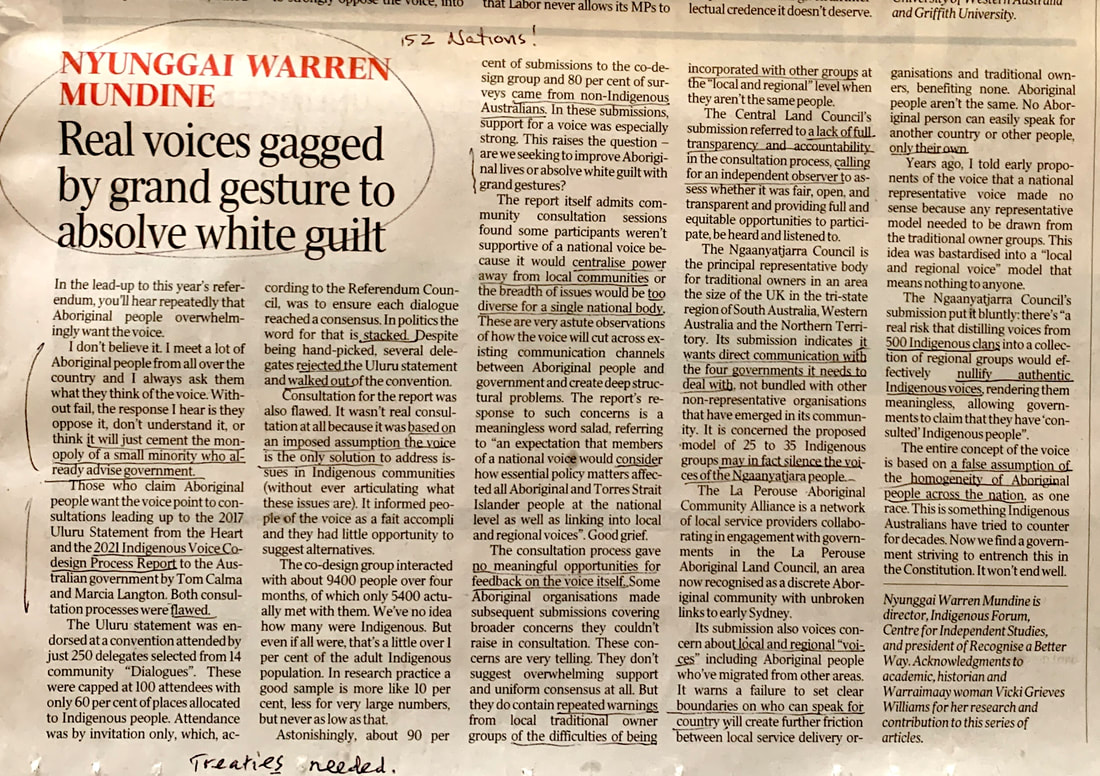
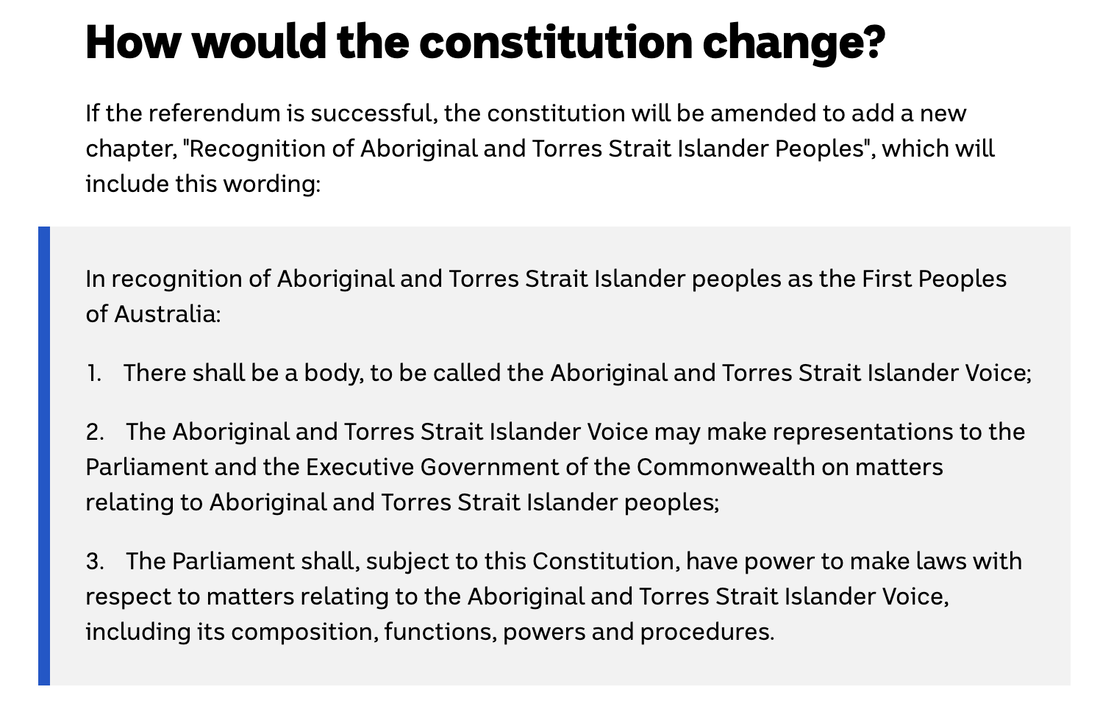
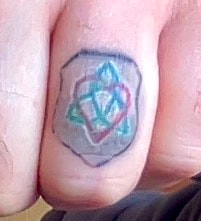
 RSS Feed
RSS Feed